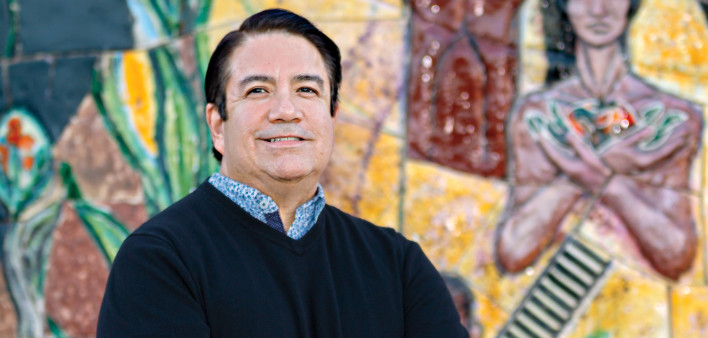As a gay man, Oscar Lopez thought it was inevitable that he would one day contract HIV. So when he entered the public health field more than 30 years ago, he made it his mission to fight and prevent HIV in his beloved LGBT and Latino communities.
“Right around the time I went into public health work was when we first started to see patients with HIV here on the border in South Texas,” says Lopez, an HIV-negative advocate based in Harlingen, Texas, in the Rio Grande Valley.
In 1989, after a stint at Planned Parenthood, where he educated young people on reproductive health and HIV, he began working with the Valley AIDS Council (VAC) as an outreach worker.
Lopez’s outreach included local bars, where he talked to people about HIV, risk behaviors and safer sex. He even organized an HIV fundraiser at a bar in Brownsville, Texas.
In the early ’90s, he moved from South Texas to Austin and continued to work with local LGBT and HIV organizations, such as Informe-SIDA and AIDS Services of Austin.
Later, while in Washington, DC, he worked with NMAC to develop treatment adherence conferences and with the Minority Health Resource Center as director of HIV capacity building.
Then, in 2001, Lopez relocated to New York City, where he was U.S. program manager at EngenderHealth and director of health policy at the Latino Commission on AIDS.
In 2012, Lopez returned to South Texas and VAC after 20-plus years. “Everything I’ve learned along the way has led me back home to change the face of HIV in my region and in Texas,” he says.
He was most recently promoted to chief policy and advocacy officer at VAC.
Lopez and his team serve many undocumented immigrants and refugees.
“What’s happening down here is more and more people are falling out of care because they’re afraid to come in for services,” Lopez explains. “Anybody who is HIV positive, regardless of nationality, can access care [at VAC]. If they are undocumented, we have to be a little more careful.”
Lopez is cochair of the National Latinx Conference on HIV, HCV and SUD (substance use disorder), which has received broad support. More than 500 people from 38 states, Canada, Mexico and Uganda attended this year’s event in San Antonio.
A supporter of pre-exposure prophylaxis (PrEP), Lopez has been taking the daily pill to prevent HIV for almost four years.
“PrEP is something we initiated down here in South Texas,” he says. “I put my money where my mouth is and got on it. This is just one more pill that keeps me safe and healthy.”
Over the next five years, Lopez plans to focus on ensuring that service providers in the region deliver the best care possible and treat people the way they deserve to be treated.
“We can do many things and move many mountains, but we can’t do it alone,” Lopez says. “Lift and hold each other up. Celebrate each other.”







1 Comment
1 Comment